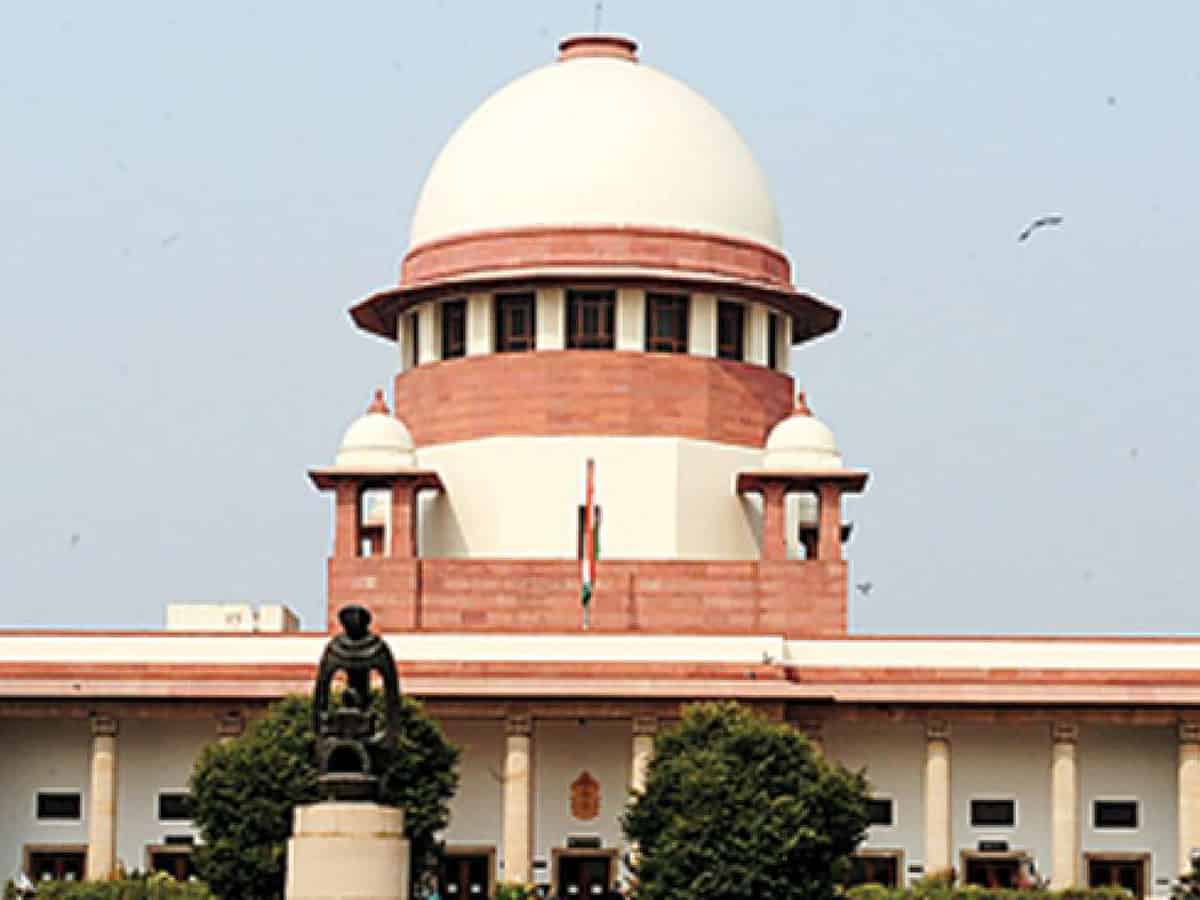
New Delhi: Justice Indira Banerjee, who was the eighth women judge in the Supreme Court, on Friday demitted office with Chief Justice of India UU Lalit, terming her as a “jewel” of the legal fraternity.
The CJI described a recent constitution bench judgement led by Justice Banerjee as “remarkable” in which a legal conundrum was settled and held that a majority decision of a bench of larger strength would prevail over the decision of a bench of lesser strength, irrespective of the number of judges constituting the majority.
Justice Lalit praised the judge for conducting the court with “grace, patience, and compassion.”
Justice Banerjee, who comes from the same chamber in Kolkata as Justice (retd.) Ruma Pal, the longest-serving woman top court judge in apex court history, hoped that more women judges will be appointed as judges of the top court judiciary.
The daughter of an IPS officer, Justice Banerjee said that law was never her priority and she never wanted to become a judge as she valued her independence.
“I valued my independence then. Now after 20 years of judgeship, I will be free once again. When I had time, I did not have money and when I had money, I did not have time. Now, I have both. I will be able to spend time with my family members, and friends, read books, and travel”, she said at a farewell function organised by the Supreme Court Bar Association.
Justice Banerjee said that she had taken up the judgeship after her father’s demise, who used to tell her “law is a jealous mistress” and think that she would not be able to do better in the profession.
“I stepped into the Supreme Court 36 years ago to argue a case but at that time never thought about what destiny has in store for me”, she said and recalled a time when she and Justice (retd) Ruma Pal got a first outstation case in Kolkata to argue in Andhra Pradesh.
In a message to young lawyers, she said that the legal profession requires patience and persistence and one should not be disheartened.
The CJI in his address said, “Collegiums always pick the best of the lot. 20 years of judicial service, single-minded and dedication-means a lot and that’s Justice Banerjee for you”.
He said that it is often said, “It does not matter what you covered in your journey but what matters is how you covered your journey and I can say that she has covered a long way in these 20 years with grace, patience, and compassion. The bar must thank Justice Banerjee’s friend who had persuaded her to join the law profession or else we would not have got this jewel”.
The CJI said, “I got to share a bench with Justice Banerjee for a few days and I must say that I had got immense contribution from her. For today’s ceremonial bench, which I don’t consider as ceremonial, I called her and asked my sister how many matters should be listed to which she replied the entire board should be listed. This is the kind of dedication and commitment she has”.
Attorney General KK Venugopal also praised Justice Banerjee for the way she conducted the court and recalled that she was the most popular chief justice in Madras High Court.
“If one enters her court, one can feel the way her court is conducted with compassion and patience. Some bar members in Madras High Court told me that she is one of the most popular chief justices the High Court has got”, he said.
Similarly, SCBA President Vikas Singh praised Justice Banerjee for her judgements and the opportunities she granted to the young lawyers to argue in her court.
Earlier in the day, Justice Banerjee, sitting on a bench presided by the CJI, hoped that more women would be appointed as judges of the top judiciary in the coming days.
Justice Banerjee, who is the fifth senior-most judge in the apex court, would be demitting office after serving for over four years.
Besides her, other women judges in the apex court are Justices Hima Kohli, BV Nagarathna, and Bela M Trivedi.
With the retirement of Justice Banerjee, there would be three women judges in the apex court.
The Supreme Court, which came into being on January 26, 1950, has seen very few women judges since its inception and in the last over 72 years — only 11, starting with Justice M Fathima Beevi in 1989.
Other female judges appointed to the apex court were — Justices Sujata V Manohar, Ruma Pal, Gyan Sudha Misra, Ranjana P Desai, R Banumathi, and Indu Malhotra.
On the last working day, Justice Banerjee shared the ceremonial bench with Chief Justice of India U U Lalit who praised her contribution to the judiciary in her over two-decade-long career.
“We all will be missing our sister, Justice Banerjee. In twenty years of judicial career, she has given everything. Hard-working — yes. Intelligent — No doubt. She has all the qualities which a judge should have. We all will be missing her on the bench and of course, she will always remain in our hearts. So, good luck sister! Wish you all the best!”, said the CJI.
Justice Banerjee, who was elevated to the top court on August 7, 2018, from Madras High Court where she was the Chief Justice, acknowledged the assistance of the bar in judgements delivered by her.
“I do hope that there will be more women in the future…hope there is cooperation for the weaker, and there be equality and justice in the shortest span of time. Thank you all”, she said in her concluding remarks.
The retirement of justice Banerjee would bring down the number of serving judges in the top court to 29 against the sanctioned strength of 34 including the CJI.



